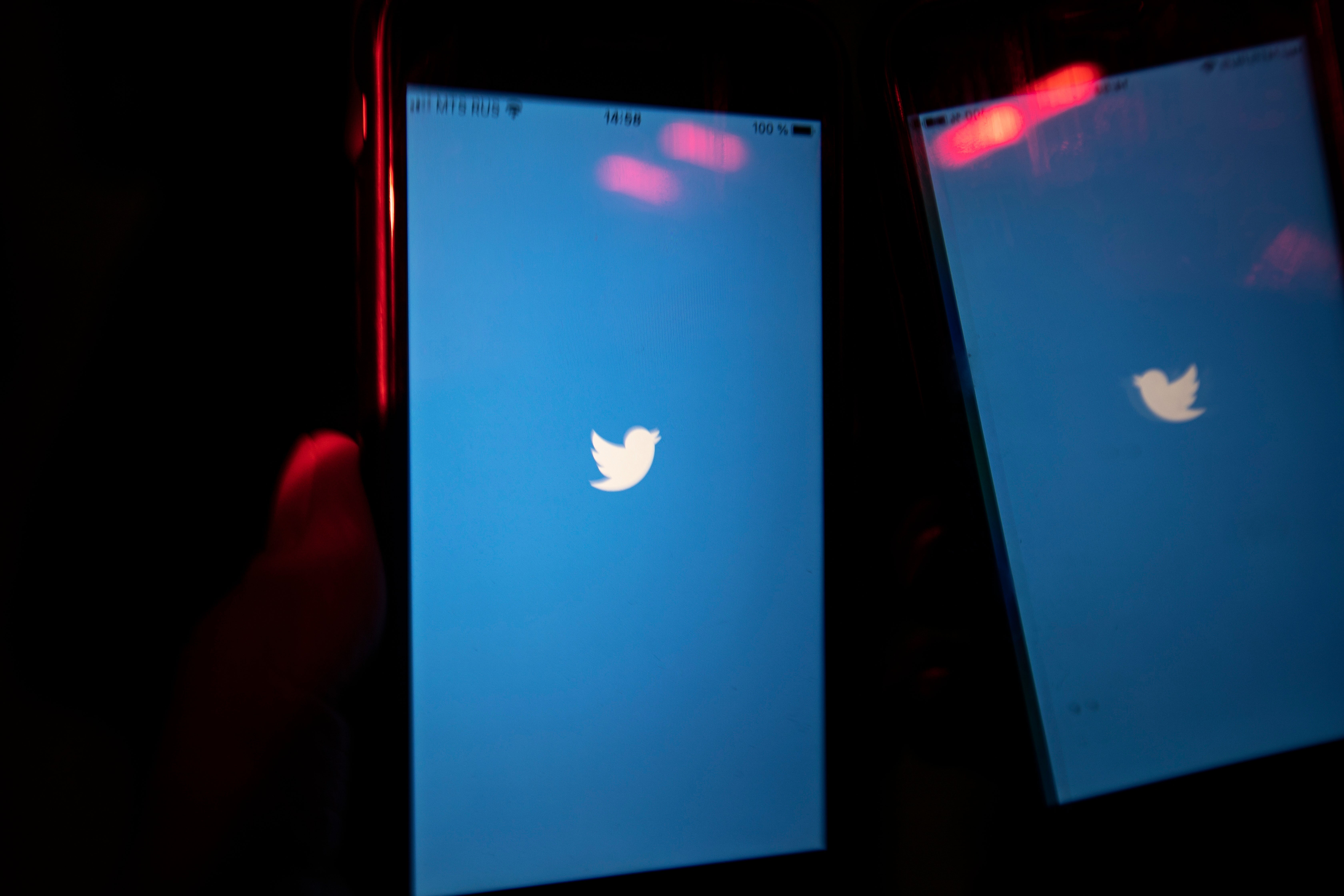Twitter slowdown in Russia until mid-May; no block for now
Russian authorities say they will continue to slow down Twitter until May 15, but won't block the social media platform for now because it has started to remove banned content faster

Your support helps us to tell the story
From reproductive rights to climate change to Big Tech, The Independent is on the ground when the story is developing. Whether it's investigating the financials of Elon Musk's pro-Trump PAC or producing our latest documentary, 'The A Word', which shines a light on the American women fighting for reproductive rights, we know how important it is to parse out the facts from the messaging.
At such a critical moment in US history, we need reporters on the ground. Your donation allows us to keep sending journalists to speak to both sides of the story.
The Independent is trusted by Americans across the entire political spectrum. And unlike many other quality news outlets, we choose not to lock Americans out of our reporting and analysis with paywalls. We believe quality journalism should be available to everyone, paid for by those who can afford it.
Your support makes all the difference.Russian authorities said Monday they would continue to slow down Twitter until mid-May, but wouldn't block the social media platform for now because it has started to remove banned content faster.
The announcement marks somewhat of a reprieve in the recent standoff between the Russian government and the platform, which has played a role in amplifying dissent in Russia.
Russia’s state communications watchdog Roskomnadzor accused Twitter last month of failing to remove content encouraging suicide among children, as well as information about drugs and child pornography. The agency announced on March 10 it was slowing down the speed of uploading photos and videos to the platform, and less then a week later threatened to block it within a month if it continues to not comply with the demands.
In response to the accusations, Twitter has emphasized its policy of zero tolerance for child sexual exploitation, the promotion of suicide and drug sales.
Roskomnadzor said in a statement Monday that it decided not to block the social media platform, “taking into account the decision made by Twitter for the first time to change the principles and speed of its own moderation service in Russia, and the removal of a significant part of the prohibited content."
The agency said that Twitter has taken down around 1,900 of 3,100 posts containing child pornography, and information about drugs and suicide. The platform has increased the speed of deleting banned content, according to Roskomnadzor — it currently takes 81 hours to do it. Still, Russian laws require social media to take down prohibited content within 24 hours of being notified about it.
In light of these developments, Roskomnadzor will continue to slow down Twitter until May 15, giving it “additional time to remove all prohibited content ... and bring its operations into full compliance” with Russian law.
Russian authorities criticized social media platforms earlier this year for bringing tens of thousands of people into the streets across the country in January to demand the release of jailed opposition leader Alexei Navalny who is President Vladimir Putin’s most well-known critic. The wave of demonstrations was the largest in years and posed a major challenge to the Kremlin.
The authorities alleged that social media platforms failed to remove calls for children to join the protests. Putin has urged police to act more to monitor social media platforms and to track down those who draw children into "illegal and unsanctioned street actions.”
The Russian government’s efforts to tighten control of the internet and social media date back to 2012, when a law allowing authorities to blacklist and block certain online content was adopted. Since then, a growing number of restrictions targeting messaging apps, websites and social media platforms have been introduced in Russia.
The government has repeatedly aired threats to block Facebook and Twitter, but stopped short of outright bans — probably fearing the move would elicit too much public outrage. Only the social network LinkedIn which wasn’t very popular in Russia, has been banned by authorities for the failure to store its user data in Russia.